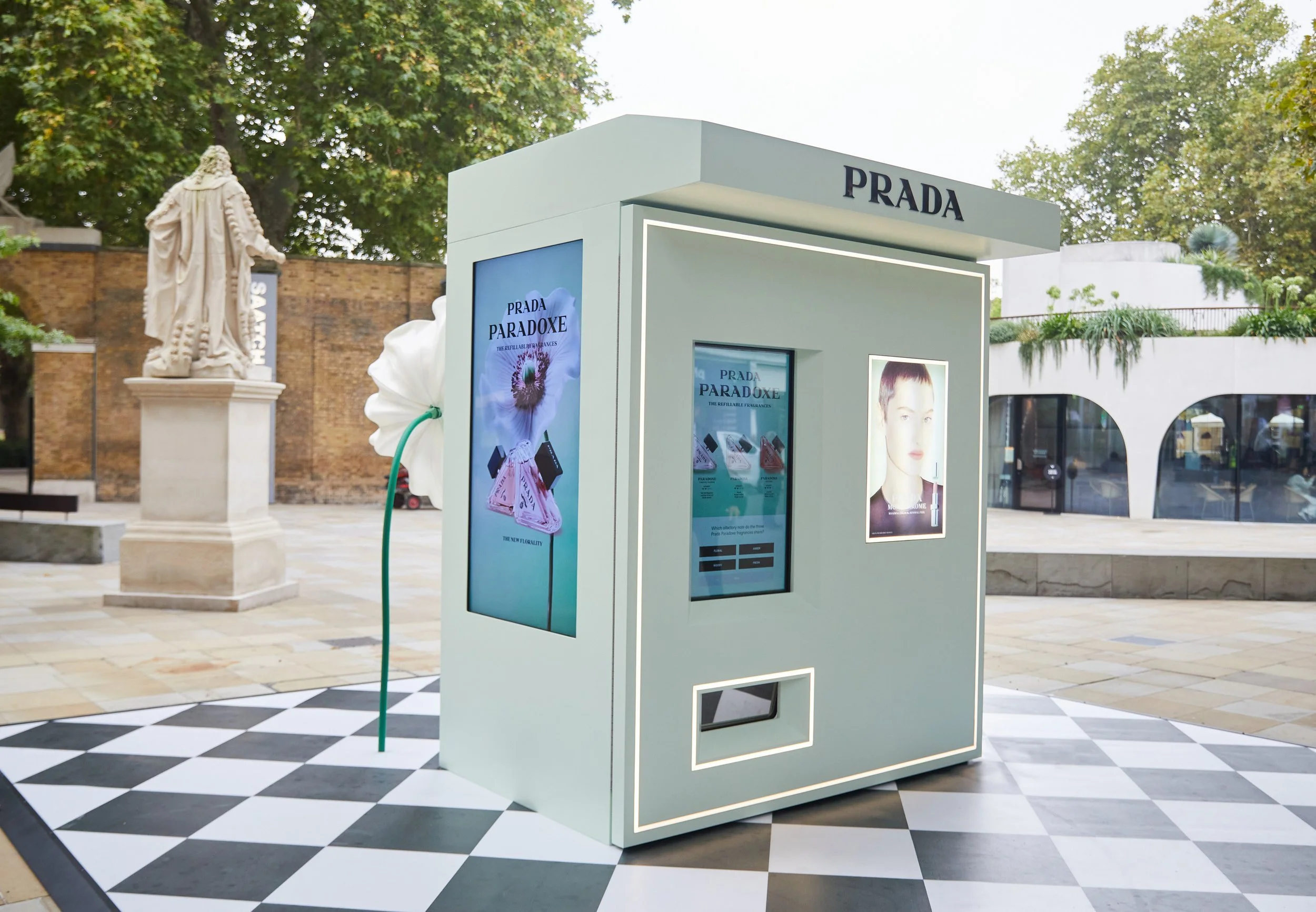Human Experiences are key to elevating today’s luxury brands
Feature by Havas Media Lux
Bottega Veneta Campaign, 2025
The rapid evolution of technology, data and digital media promised to forge deeper, more personal relationships with luxury consumers. But, in a media landscape dominated by automation, algorithms and AI it would seem that, as marketing professionals, we are forgetting the human. At Havas Media Lux, we believe in a people-first approach, putting the human experience back at the heart of marketing.
A Technological Takeover
Gucci AI Retail Space
It's now 2025, marking the second quarter of the 21st century, a time defined by rapid changes in technology, climate, and society. Unlike the year 2000, when the internet felt like a separate realm, we now live in a post-digital age where digital technology is seamlessly integrated into daily life. We're always connected, and this has transformed our experiences, making them more relatable to real life.
With advancements in AI, technology is learning our preferences, enabling advertisers to create personalised experiences. However, as the opportunity for personalisation exists, many consumers feel uncomfortable with it. Recent surveys reveal that 79% of people find digital advertising a concern, even more than personal safety, and 81% view personalisation as invasive. Additionally, 73% believe AI needs stricter regulation. This highlights an unsettling trend: the dehumanizing impact of data and technology in advertising.
As an industry, we must focus on rehumanising these interactions, placing the human experience at the forefront of our relationships with brands and technology. Our goal should be to enrich the human condition, not detract from it.
The Human Touch
Anya Hindmarch Corner Shop
Luxury is, at its core, a deeply human experience. A brand’s success hinges on its ability to create meaningful connections. The essence of luxury is rooted in storytelling, exclusivity, craftsmanship, and a personal touch—creating a deeply human relationship between the brand and consumer. As we navigate an increasingly digital world, the challenge lies in leveraging technology to enhance these qualities rather than diminish them. It is essential for luxury brands to use technology as a catalyst that amplifies the human experience rather than as a substitute for it.
The principles of human experience are foundational to successful luxury brand building. In this digital landscape, the human touch, authentic connection, and personal engagement emerge as critical differentiators. Luxury brands that prioritise these human-centric elements will cultivate new growth and lasting loyalty. While the importance of reintroducing human experience into branding is not a novel concept, it remains highly pertinent and increasingly vital in today's ever-evolving market.
More Personalised & Immersive Experiences
Prada Paradoxe Pop Up, 2024
Luxury is no longer just about the product — it's about the experience, the emotion and the connection. When brands engage with consumers authentically, they create the kind of meaningful, memorable experiences that define true luxury. In today's landscape, media must elicit a human response, engaging the senses and creating immersion. The most powerful media doesn't just inform—it connects on a human level, sparking reactions, reflections, and conversations. Media that leans into experiential and social, in particular, engages audiences on a deeper, emotional level. Whether it's a brand film, a pop-up event, or an immersive VR experience, it's in that emotional connection that true impact is made.
At Havas Lux we believe there are three key principles that luxury brands should adhere to today:
Prioritising Meaningful Connections – Getting closer to people has never been more business critical and the growth of today’s luxury brands depends on a profound understanding of your consumer – not just who your loyal, long-term brand fans are, but who your consumers of the future will be. There’s a real need to understand their changing behaviours, their interests and passion points. Today’s luxury consumers seek more than just a product; they desire an experience, a story, and a sense of belonging to an exclusive community. Building genuine relationships and understanding their sophisticated needs beyond basic demographics is paramount. Meaningful brand ideas that resonate with the values and aspirations of their target audience are essential.
Storytelling – Storytelling is becoming increasingly important in the era of enhanced technology. Luxury brands should leverage technology to share their stories in innovative and engaging ways. Whilst AI can help bring a brand’s heritage to life, it’s the human element – such as the artisans who create the products, the storytellers behind the pieces that should be visible, to define its premium positioning.
Human-Centric, Seamless Experiences: Luxury brands excel at creating exceptional and personalised experiences across all touchpoints. From the opulent in-store environment to bespoke customer service and exclusive events, the human element is central. Seamlessly integrating online and offline experiences while maintaining a human touch is vital — creating immersive experiences that merge the digital and physical worlds; whilst allowing the personal interactions with staff to be elevated at the same time.
As luxury continues to evolve, it’s clear that brands prioritising human connection will be the ones that truly thrive in a competitive market. In an era where consumers increasingly seek authenticity and meaningful relationships, luxury brands must address the common fear of selling out. By fostering genuine, human connections with their audience, brands can build trust and cultivate loyalty.
————-
To find out more about Havas Media Lux get in touch via Hmgukcomms@havasmg.com or via their website havasmedialux.com.




